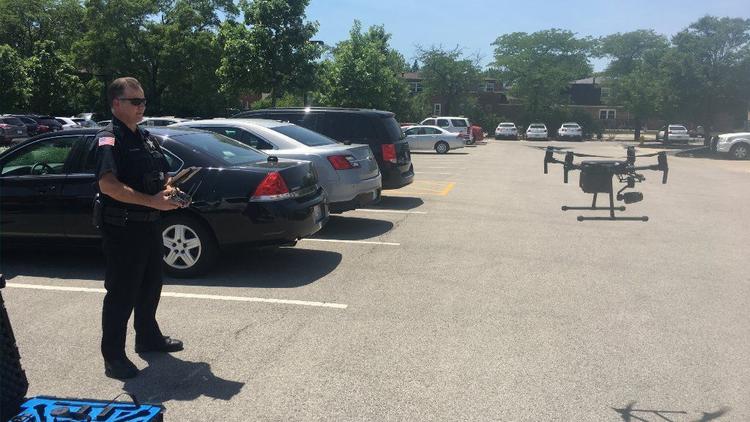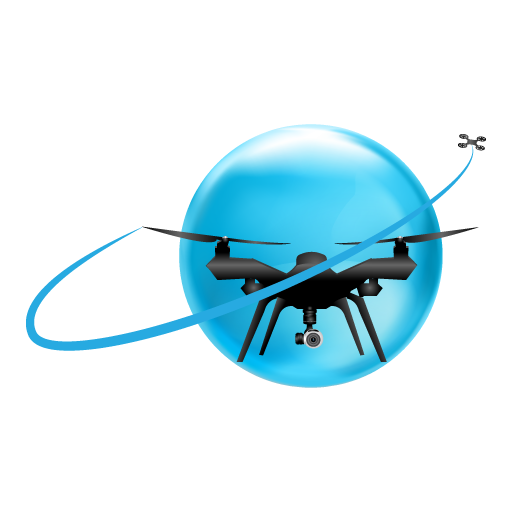Orland Park stands out among the few communities where authorities are using innovative drone technology to help apprehend criminal suspects and search for lost people. Influences from other jurisdictions have enlisted Orland Park’s drone help on five or more recent events, Police Chief Tim McCarthy told me.”In most instances, it’s a lost or missing person,” McCarthy said. “If we are available we are going to help.”Orland Park recently dispatched an officer and drone to help look for a lost person in a mountainous area of Richton Park,” McCarthy said.

Best drones 2018: Top rated quadcopters to buy, whatever your budget
The section also helped Romeoville police hunt near a McCook quarry for a defendant in a murder investigation, he said.”Finally, a canine unit found that person,” he explained. A state report that last year Orland Park was one of only six bureaus in the nation using drone technology. The authority’s 2017 report revealed Orland Park, Hanover Park, Gurnee and the DuPage County sheriff’s office each possessed one drone. Illinois State Police reported it owned six drones.
Orland Park has been using drone technologies since 2015, McCarthy said. The section recently released video footage from a drone revealing officers apprehending a suspect in a parking lot nearby LaGrange Road and 147th Street. The department published another piece of footage showing how the drone aided Will County sheriff’s officers to find and apprehend a suspect who had been hiding in an area. One reason few departments are using the technology might be the number of regulations and training involved with drone usage.
The FAA requires departments looking to use drones to get a certificate of authorization or COA. Drone operators must pass Part 107 of the Federal Aviation Regulations for a permit to utilize small, unmanned aircraft.”There is significant regulation,” McCarthy said. Up to now, eight Orland Park police officers are trained and licensed to run drones, he said. The department recently acquired a new, bigger drone. Officer Keith Valentino and others demonstrated it for me Thursday at a parking lot in the police station.
Larger batteries may keep the drone in the atmosphere for up to 40 minutes, while the department’s older and smaller drone has 20-minute battery life. The drone has two backup batteries, Valentino said, which is recharged in a police car while the drone is in the atmosphere. Valentino showed me how he steers and lifts the drone using a controller which resembles joysticks on a video game console. The control connects to an iPad that displays video in the camera. “The closer you get, the better the image,” Valentino said. “The camera on the new drone has infrared technologies so that we can use it at night.”I was impressed with the department’s use of this technology and the degree of training exhibited in the demonstration. I appreciated the way the department is using drones to help search for missing people and grab criminal suspects. But police use of drones is contentious.
Currently, the law of the state allows police to use drones for a variety of reasons, such as taking pictures or collecting video of crime scenes, traffic crashes and during crises or public-health emergencies. The law also enables drone use,”If a law enforcement agency owns reasonable suspicion that, under certain conditions, swift action is required to prevent harm to life, or to forestall the imminent escape of a person or the destruction of evidence.”If a department uses a drone for those purposes, the law requires authorities to submit a report to the local state’s attorney within 24 hours of when the drone has been deployed.
The Gen. Assembly is considering legislation to allow expanded use of drones to conduct surveillance in large-scale events. Proponents say the measures could help police prevent terrorist actions and mass shootings such as the October massacre in a concert in Las Vegas. Privacy advocates and some lawmakers warn that police could abuse the surveillance technologies. Some raise concerns that authorities could use drones to identify protestors at peaceful political demonstrations.
Karen Sheley, director of the American Civil Liberties Union’s Police Practices Project, said in a May 1 statement the ACLU opposed police use of drones to surveil audiences without first getting a warrant.”If the bill is passed, as drafted, during the upcoming large-scale political rally, drones could identify and record people protesting the Trump government,” Sheley said. Most African American state legislators voted against the proposition when the House considered it on May 25, and the proposition fell six votes short of approval, the Chicago Tribune reported.”I know this will be an abused procedure — particularly on the South Side of Chicago,” state Rep. Andre Thapedi, D-Chicago, told the Tribune. “I know it is going to happen.”The revised bill increases the threshold for the estimated size of audiences that authorities could surveil with drones to 1,500 from 100.
The amended version would prohibit governments from using facial-recognition drone applications to recognize people recorded by drones. The revised version would require police departments to make written policies addressing drone utilization, and for managers to approve deployment at large-scale occasions. In addition to yearly reporting the number of drones it possesses, departments also will be asked to inform the Illinois Criminal Justice Information Authority how many occasions drones were used in a year and for what functions.
